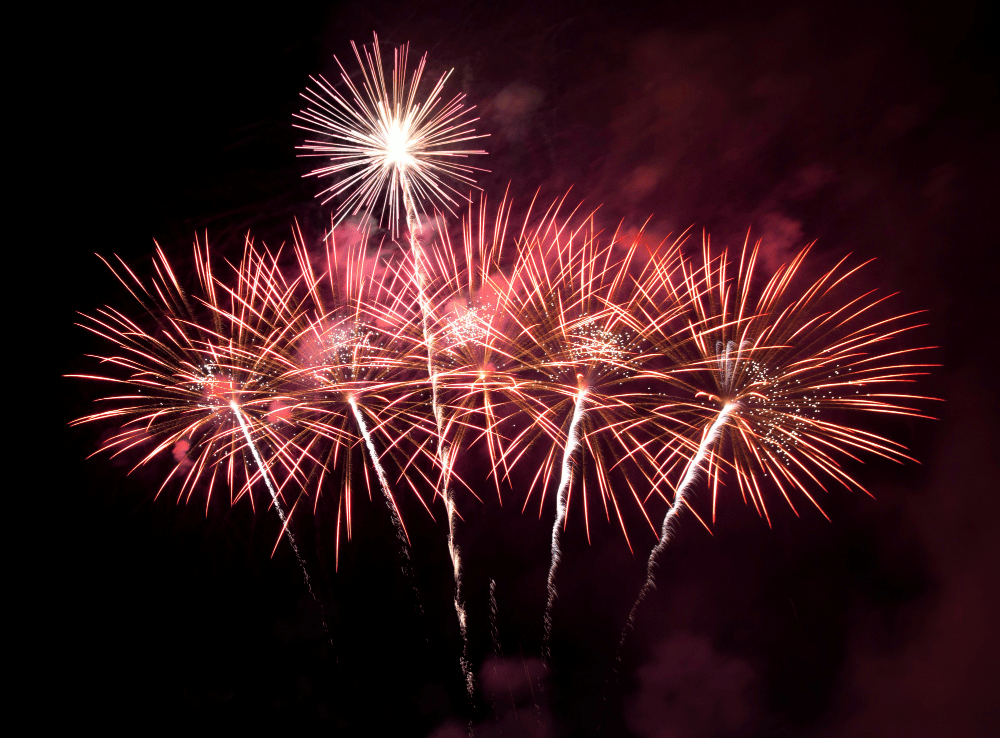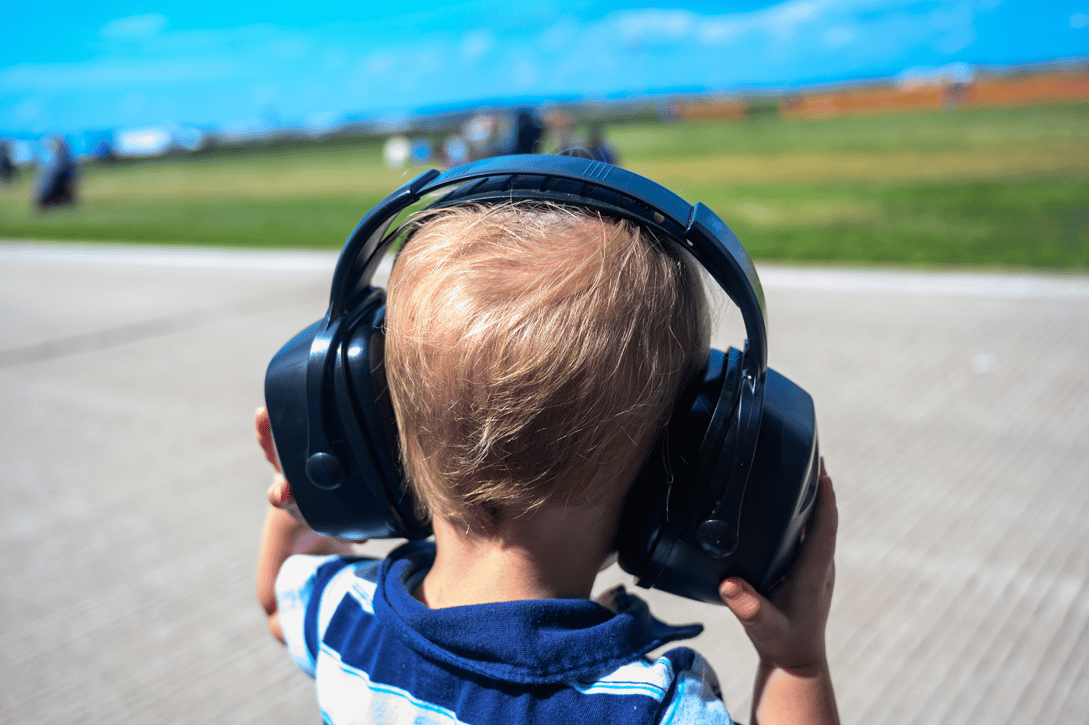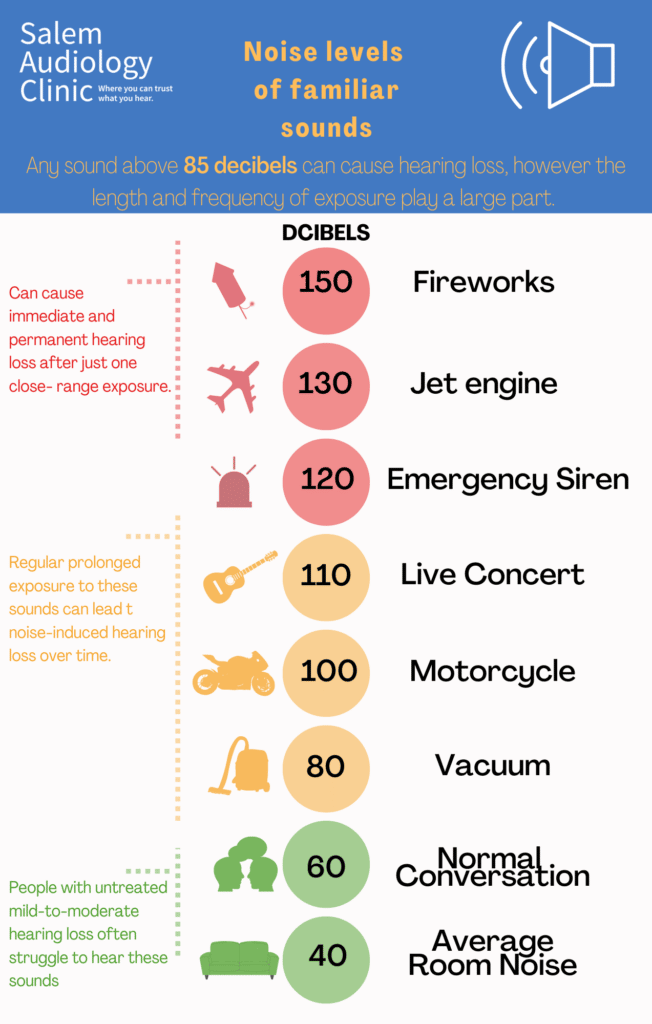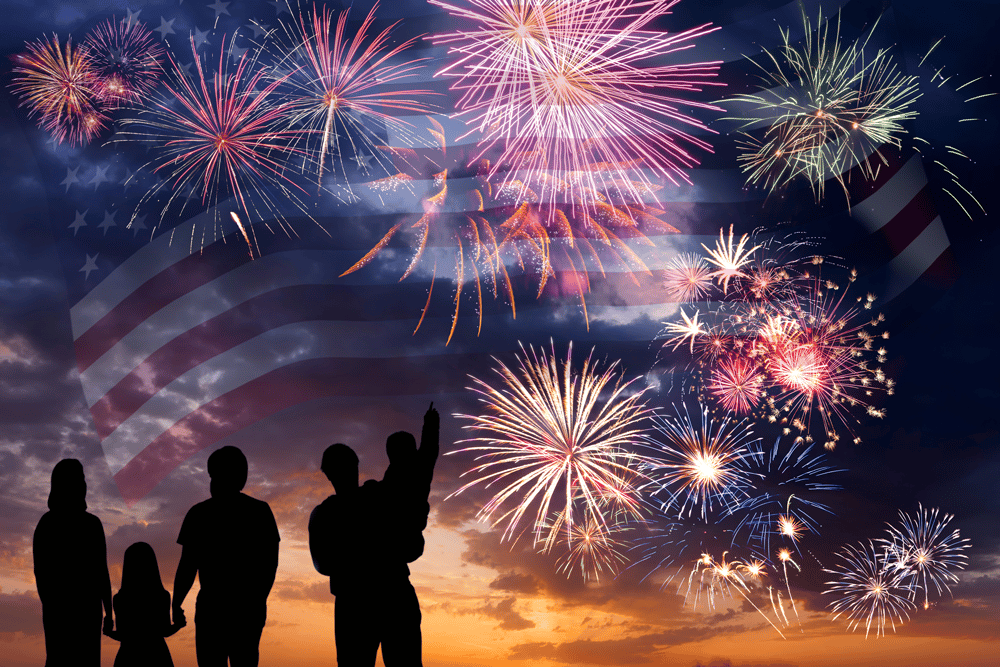
Whether you’re planning an at-home display or plan on attending a public fireworks show, you may be at risk for hearing loss this Fourth of July.
How fireworks impact hearing
Fireworks produce a sound output of 150 – 160 decibels (dB), equivalent to a rock concert and shotgun blast. Safe hearing levels are generally 75 – 80 dB, and the louder the noise, the less time it takes to damage someone’s hearing. Every year, many experiences some damage to their hearing due to fireworks and lack of hearing protection.
Noise-induced hearing loss is entirely preventable. However, once it occurs, it is irreversible. You must consider two things when preparing for your holiday celebration.
The first is the distance from the source of the sound. Sound is far less likely to damage your hearing the further away you are positioned from the fireworks.
The second is the loudness of the fireworks themselves. The World Health Organization recommends that adults not be exposed to over 140 decibels; you would have to stand 50 – 65 feet from the source of the sound before being considered “safe.” It should be noted that children at that same sound level should be 160 – 200ft from the source of the sound. Infants should not be exposed to fireworks, as they generally experience the most significant sound pressure.

Proper protection for your hearing

Proper hearing protection is essential when it comes to being around loud sounds. You can purchase two main styles of earplugs at your local drug store, sporting goods shop, or supermarket—roll-down foam plugs that go directly into the ear canal or headphones that sit over the ears.
Headphones:
Tend to be more comfortable to wear for extended periods and offer more overall protection by creating a “seal” around the ear. Although they are more expensive than foam earplugs, you can use them multiple times, making them a better choice for longevity.
Earplugs:
are inserted in the ear canal. They may be pre-molded (preformed), moldable, roll-down foam, push-to-fit, or custom molded. These are much less expensive and less comfortable to wear for extended periods. If your hands are not clean can also run the risk of inserting dirt and debris into your canal, potentially causing ear infections.
A hearing test is strongly urged if an individual suspects they’ve experienced a change in hearing. If changes have occurred, the Audiologist can determine if it is a temporary or permanent hearing loss.
Although exciting, it is crucial to realize that fireworks can harm your hearing. With the proper protection, you and your family and friends can enjoy the Fourth of July holiday without worrying about hearing loss.

Tips to protect your hearing during the 4th of July
Wear ear protection.
An inexpensive way to protect your hearing, not only during the 4th but any loud event. Make sure your hearing protection fits correctly; whether using earplugs or earmuffs for children under ten years old, use ear muffs.
Know your limits.
Sounds at or above 85 dB can cause hearing loss. The louder the sound, the shorter the time before hearing loss can occur. You find apps that will notify you of how noisy your surroundings are that you can download for free. If you begin experiencing ringing in the ears or any other ear discomfort, move further away from the noise source.
Keep your distance.
Be sure to keep a distance of at least 500 feet from noise sources, such as speakers, a stage, or a fireworks launch site. You are more likely to generate damage to your hearing the closer you stand.
Firework Selection.
Try to select quieter fireworks. Sparklers, fountains, and other low-level sound-producing fireworks, still make for a beautiful display but produce far less potentially harmful noise.
Noise-induced hearing loss.
Noise-induced hearing loss is one of the leading producers of hearing loss in the United States. Exposure to loud sounds, including fireworks, can lead to:
- Temporary hearing loss
- Tinnitus (ringing in the ears)
- Repeated or long-term exposure can lead to permanent hearing loss.
- Ruptured ear drum (infrequent)
See a hearing care professional if you believe you have momentary hearing loss after attending a fireworks display. In that case, Salem Audiology Clinic is here to help. And don’t worry; you can still have fun this Fourth of July while guarding your hearing from the eardrum-shattering booms. Safeguarding your hearing now will enable you to enjoy the sounds of the fireworks for years to come. P
